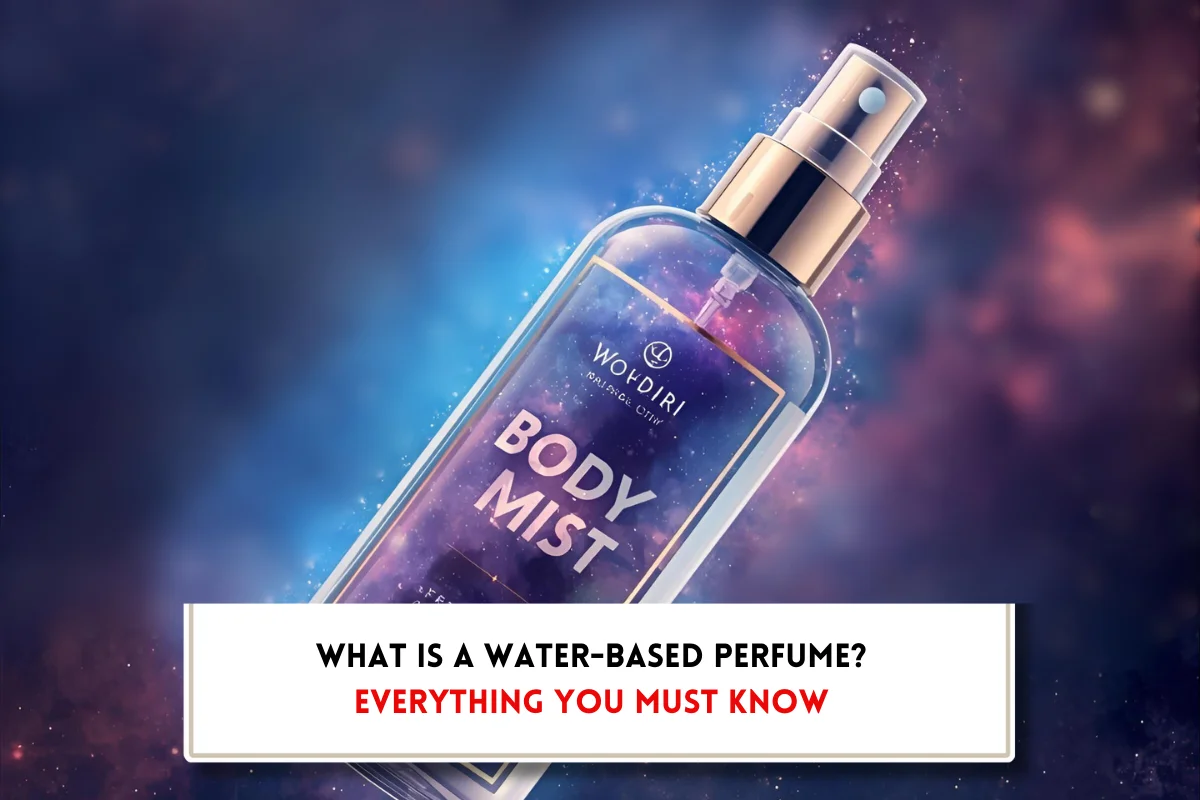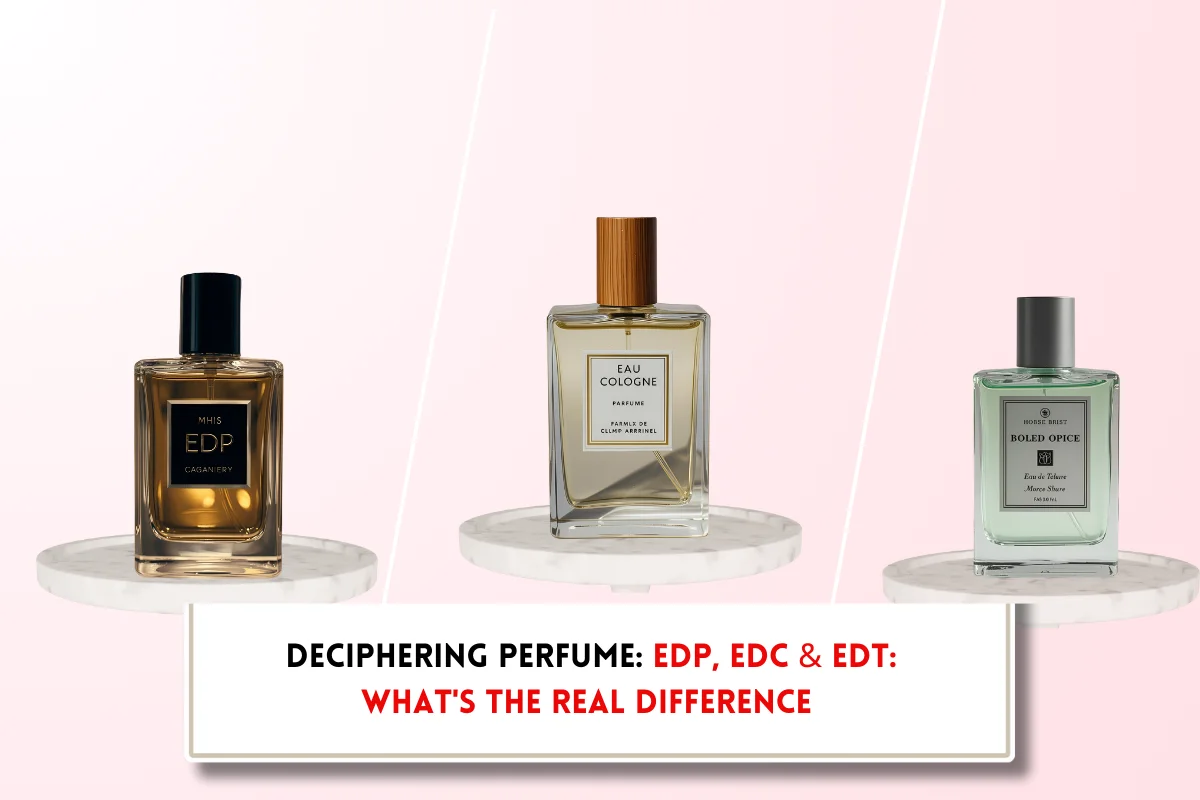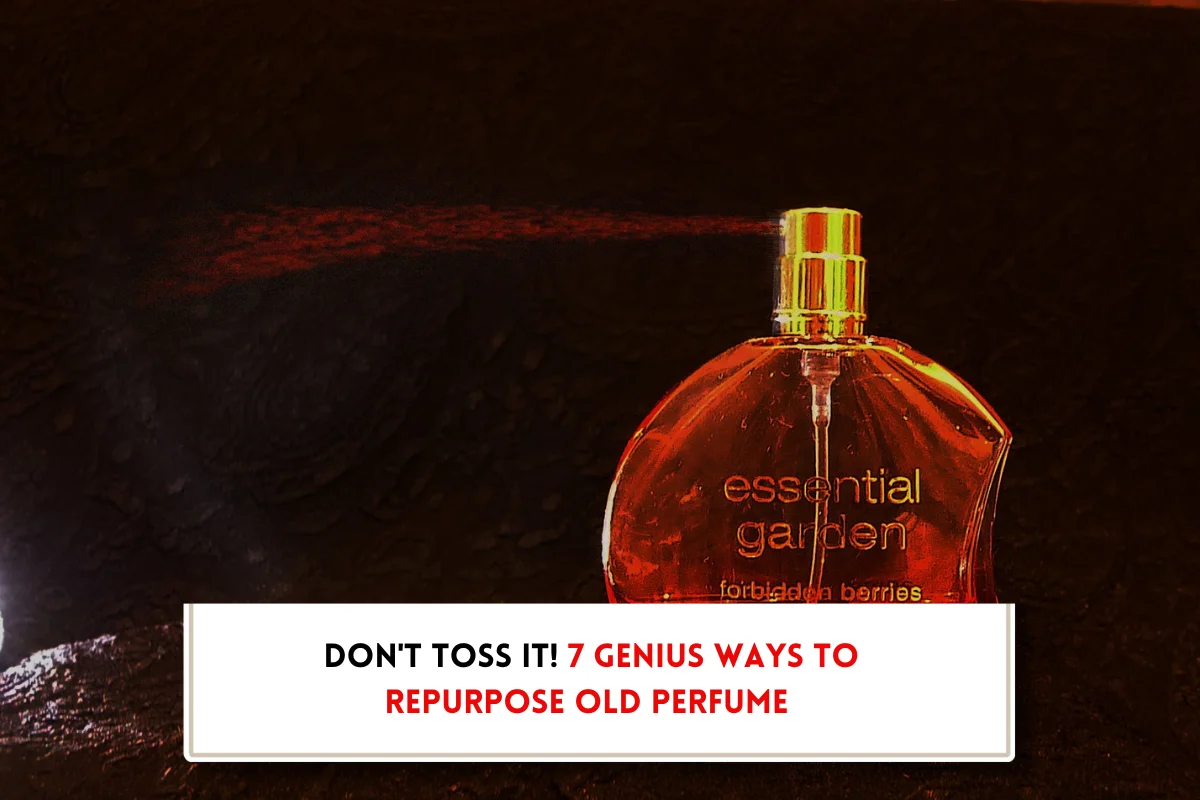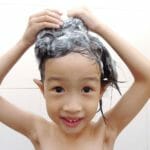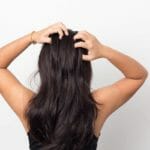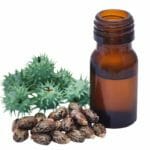Does hair spa remove dandruff?
At BeautyCaters, our expert team independently curates every recommended product. Purchases through our links may earn us a commission. Explore our transparent selection process.
Itchy scalp, and those embarrassing white flakes – dandruff is a real party pooper! While over-the-counter treatments are readily available, many people turn to hair spas for a more comprehensive solution. Now, here rise the question, does hair spa remove dandruff. This blog post is all about it. So, read on and know if a hair spa session can help you say goodbye to pesky scalp condition.
- Understanding dandruff
- Does hair spa remove dandruff?
- Common hair spa ingredients for dandruff
- How hair spa works on dandruff?
- Benefits of hair spa on dandruff
- Drawbacks of a hair spa on dandruff
- Hair spa vs. Traditional dandruff treatments
- Recommended hair spa practices for dandruff management
- Final Words: Does hair spa remove dandruff?

Understanding dandruff
Dandruff is a chronic scalp condition characterized by the shedding of dead skin cells that leads to noticeable flakes in your hair. These conditions are result of fungal overgrowth, skin conditions, and improper hair care. While often associated with dryness, it can also occur in people with oily scalps.
Dry scalp vs. Dandruff
While both dry scalp and dandruff involve the shedding of dead skin cells, they are distinct conditions with different underlying causes.
- Dry scalp: Characterized by dryness, tightness, and flakiness, dry scalp often lacks the associated itchiness and inflammation commonly found in dandruff. It can be managed through increased hydration and gentle hair care practices.
- Dandruff: Typically caused by an overgrowth of Malassezia yeast, dandruff involves the production of oily flakes and often leads to itching and irritation. It requires targeted treatments to address the underlying fungal imbalance.
It’s essential to accurately identify the nature of your scalp issue to select the appropriate treatment. While both dry scalp and dandruff may benefit from some hair spa treatments, addressing the underlying cause is crucial for long-term relief.
What are the causes of dandruff?
Causes of dandruff are diverse. For instance, yeast-like fungus called Malassezia is commonly recognized as a significant contributor to dandruff. Other causes may include hormonal imbalances, poor diet, stress, and lack of proper hair care. Identifying the root cause of your dandruff can lead to more effective treatment options. Here are the common reasons why you are experiencing an itchy scalp and those white flakes:
- Oily scalp: Excessive oil production can create a breeding ground for the fungus Malassezia, contributing to dandruff.
- Seborrheic dermatitis: This chronic skin condition, triggered by an overgrowth of Malassezia yeast, is a primary cause of dandruff. It often presents with other symptoms such as redness, itching, and oily flakes.
- Dry scalp: Insufficient moisture in the scalp can lead to dryness and flaking, mimicking dandruff. However, unlike seborrheic dermatitis, dry dandruff typically lacks the associated inflammation and itchiness.
- Allergies and irritants: Sensitivity to hair care products, dyes, or styling agents can trigger scalp inflammation and dandruff-like symptoms.
- Fungal and bacterial infections: In some cases, dandruff may be linked to fungal or bacterial infections of the scalp. These infections can cause persistent itching, scaling, and redness.
- Underlying medical conditions: Certain medical conditions, such as psoriasis, eczema, or thyroid disorders, can affect the scalp and contribute to dandruff-like symptoms.
- Nutritional deficiencies: Inadequate intake of essential vitamins and minerals, particularly those involved in skin health, can impact scalp condition and lead to dandruff.
Types of dandruff
not all dandruff is the same. Recognizing the specific type of dandruff you’re experiencing is crucial for effective treatment.
- Dry dandruff: Characterized by small, white flakes and often accompanied by a dry, itchy scalp.
- Oily dandruff: Associated with an oily scalp and larger, yellowish flakes.
- Seborrheic dermatitis: It is a more severe form of dandruff involving inflammation, redness, and greasy scales.
| Type | Description |
| Dry Dandruff | Small, white flakes, often accompanied by an itchy scalp. |
| Oily Dandruff | Large, yellowish flakes that tend to cluster. |
| Seborrheic Dermatitis | Inflammation of the scalp, leading to redness and oily scales. |
Note that these are general categories, and individual cases may exhibit varying symptoms. If you’re struggling to identify the type of dandruff affecting your scalp, consulting a dermatologist can provide accurate diagnosis and appropriate treatment recommendations.
Symptoms of dandruff

Dandruff can manifest in several ways, predominantly presenting as white flakes in your hair and on your clothes. You may also experience mild to significant itching, irritation, and redness on your scalp.
Symptoms typically intensify in dry weather or after using irritating hair products. Symptoms may include:
- Visible flakes in hair and on clothing.
- Itchy or irritated scalp.
- Red patches or inflammation.
- Dryness on skin surrounding hairline.
- Increased flaking after scratching.
Recognizing these symptoms early can help you take proactive steps to manage and reduce dandruff.
Does hair spa remove dandruff?
Dandruff, characterized by the persistent shedding of dead skin cells from the scalp, can be a frustrating and embarrassing condition. While hair spas offer a range of treatments designed to improve hair health, it provide temporary relief from dandruff symptoms through scalp exfoliation and flakes removal. They may not address the root cause of the problem.
Some spas offer specialized anti-dandruff treatments that incorporate medicated shampoos, conditioners, and scalp masks to target the underlying issue.
Common hair spa ingredients for dandruff
Hair spas often incorporate a range of natural and medicated ingredients to combat dandruff effectively. These key components target the root causes of dandruff, soothe the scalp, and promote overall hair health.
- Antimicrobial agents: Ingredients like tea tree oil, neem oil, and salicylic acid possess antimicrobial properties that help to control the growth of Malassezia fungus, a primary contributor to dandruff.
- Soothing and hydrating elements: Aloe vera, coconut oil, and shea butter offer deep hydration and nourishment, reducing dryness and flakiness associated with dandruff.
- Exfoliating agents: Gentle exfoliants like sugar or salt scrubs help remove dead skin cells and product buildup, creating a clean scalp environment.
- Scalp-cooling agents: Ingredients such as menthol or peppermint can provide temporary relief from itching and discomfort caused by dandruff.
Hair spa ingredients play a critical role in determining the treatment’s success in removing dandruff, as they can target scalp conditions while promoting hair health.
How hair spa works on dandruff?
Hair spas offer a holistic approach to combating dandruff by addressing both the symptoms and underlying causes of the condition. Through a combination of expert techniques and specialized products, hair spas deliver a comprehensive treatment experience.
- Deep cleansing and exfoliation: Hair spa treatments effectively remove product buildup, dead skin cells, and excess oil from the scalp, creating a clean and balanced environment for optimal hair health. Exfoliation helps to unclog pores and prevent the recurrence of dandruff.
- Hydration and nourishment: By infusing the scalp and hair with essential moisture, hair spas restore the scalp’s natural barrier function, reducing dryness and flakiness associated with dandruff. Nourishing ingredients like Shea butter, coconut oil, and aloe Vera help to soothe irritation and promote healing.
- Stimulation and circulation: Scalp massages, a key component of hair spa treatments, enhance blood circulation, delivering vital nutrients and oxygen to the hair follicles. This improved blood flow stimulates hair growth and creates a healthier scalp environment.
- Targeted treatments: Many hair spas offer specialized anti-dandruff treatments that incorporate medicated shampoos, conditioners, and scalp masks. These products contain active ingredients like zinc pyrithione, salicylic acid, or tea tree oil, which directly target the microorganisms responsible for dandruff.
- Nutrient infusion for scalp and hair: Hair spa treatments utilize a blend of vitamins, minerals, and natural oils to nourish the scalp and hair follicles. These essential nutrients, including omega-3 fatty acids, vitamins B and E, contribute to stronger, healthier hair. By fortifying the hair from within, hair spas help prevent dryness, breakage, and dandruff.
- Relaxation and stress reduction: Stress can exacerbate scalp conditions, including dandruff. Hair spa treatments offer a serene environment that promotes relaxation and stress reduction. This holistic approach supports overall well-being and contributes to a healthier scalp.
Benefits of hair spa on dandruff

Hair spas offer a range of benefits for both the hair and scalp. By incorporating deep cleansing, nourishment, and relaxation, these treatments can significantly improve hair health and overall well-being.
- Deep cleansing and detoxification: Hair spas effectively remove product buildup, impurities, and dead skin cells from the scalp, creating a clean and balanced environment for optimal hair growth.
- Nourishment and hydration: Infused with vitamins, minerals, and essential oils, hair spa treatments deliver deep hydration, restoring moisture balance and preventing dryness.
- Scalp stimulation and blood circulation: Scalp massages, a key component of hair spas, promote blood flow, delivering vital nutrients to the hair follicles and stimulating hair growth.
- Stress reduction and relaxation: Hair spas offer a tranquil escape, allowing you to unwind and de-stress. This mental relaxation indirectly benefits scalp health and hair growth.
- Improved hair texture and shine: By replenishing moisture and smoothing the hair cuticle, hair spas enhance hair texture, resulting in a lustrous, silky finish.
Drawbacks of a hair spa on dandruff
While hair spas offer numerous benefits, it’s essential to consider the potential drawbacks before booking an appointment.
- Cost and time commitment: Hair spa treatments can be a significant investment in terms of both time and money. Regular sessions may not be feasible for everyone due to budgetary constraints or scheduling limitations.
- Potential for product buildup: Excessive use of hair spa products can lead to product buildup on the scalp, which may necessitate additional cleansing and potentially disrupt the scalp’s natural balance.
- Color fading: Certain hair spa treatments, especially those involving heat styling or chemical processes, may cause color fading in dyed hair.
- Temporary results: The effects of a single hair spa treatment are often temporary, requiring multiple sessions to maintain optimal results.
- Allergic reactions: Individuals with sensitive skin or allergies may experience adverse reactions to certain hair spa products or ingredients.
It’s crucial to weigh the potential benefits against these drawbacks to determine if a hair spa is the right choice for your hair care routine.
Also Read: 11 best natural oils for hair
Hair spa vs. Traditional dandruff treatments
When combating dandruff, individuals often weigh the options between hair spas and anti-dandruff shampoos. Both approaches offer benefits, but they differ in terms of application, frequency, and overall impact.
Hair spas
- Professional treatment: Involves a comprehensive approach to scalp care, including cleansing, massage, and conditioning.
- Customized solutions: Offers tailored treatments based on individual scalp needs.
- Relaxation and stress relief: Provides a soothing and pampering experience.
- Potential for long-term benefits: Regular hair spas can improve overall scalp health and reduce dandruff recurrence.
Anti-dandruff shampoos
- At-Home convenience: Easily accessible and can be used as part of a daily hair care routine.
- Targeted treatment: Formulated with specific ingredients to address dandruff-causing microorganisms.
- Cost-effective: Generally more affordable than frequent hair spa treatments.
- Immediate relief: Often provides quicker relief from itching and flaking.
Choosing the right approach
The best method for dandruff management depends on individual preferences, severity of the condition, and available resources. For mild dandruff, anti-dandruff shampoos may suffice. However, for persistent or severe cases, a combination of hair spa treatments and targeted shampoos can be beneficial.
Scalp medications vs. Hair spa treatments
When addressing dandruff, individuals often weigh the options of hair spa treatments and medicated solutions. Both approaches offer benefits, but they differ in their mechanisms of action and effectiveness.
Hair spa treatments
- Holistic approach: Hair spas focus on overall scalp health and well-being, addressing both dandruff symptoms and potential underlying causes.
- Relaxation and stress reduction: The pampering experience can help alleviate stress, a contributing factor to dandruff in some cases.
- Gentle cleansing and hydration: Hair spa treatments remove product buildup and restore moisture balance.
- Limited efficacy for severe dandruff: While helpful for mild cases, hair spas may not be sufficient for chronic or severe dandruff.
Scalp medications
- Targeted treatment: Medicated shampoos and lotions contain active ingredients specifically designed to combat the fungus responsible for dandruff.
- Rapid symptom relief: Often provide quicker relief from itching, flaking, and redness.
- Potential side effects: Some medicated treatments may cause dryness, irritation, or hair discoloration.
- Long-term use: May require ongoing use to prevent dandruff recurrence.
Choosing the right approach
The optimal solution for dandruff management depends on the severity of the condition, individual preferences, and lifestyle factors. In many cases, a combination of hair spa treatments and medicated shampoos can provide the best results. Consulting with a dermatologist or trichologist can help determine the most appropriate treatment plan.
Recommended hair spa practices for dandruff management
Despite common beliefs, effective hair spa treatments can significantly help manage dandruff. Incorporating the right techniques and products into your routine can lead to healthier scalp conditions and reduced flaking. Here are some recommended practices you can implement for optimal results.
Frequency of sessions

To achieve the best results in managing dandruff, it is advisable to schedule hair spa sessions once every two weeks. This frequency allows your scalp to benefit from treatment while avoiding over-stimulation, which can sometimes exacerbate your condition.
Aftercare following a hair spa
Treatments after your hair spa session are critical for maintaining the benefits achieved. Ensure you continue to use gentle, moisturizing products and avoid harsh chemical treatments that could irritate your scalp further.
Aftercare rituals include using sulfate-free shampoos, regularly applying conditioner, and gently massaging your scalp to improve circulation. This attention to aftercare can prolong the effects of the treatment and keep dandruff at bay.
At home, you might also consider weekly scalp masks with ingredients that combat dryness and flakiness. These practices, combined with the right hair spa treatments, can vastly improve the condition of your scalp over time, leading to healthier hair and a more comfortable experience.
Final Words: Does hair spa remove dandruff?
While hair spas offer a luxurious and relaxing experience, their effectiveness in completely eradicating dandruff depends on the underlying cause. For mild cases of dandruff, a hair spa can provide temporary relief and improve overall scalp health. However, persistent or severe dandruff may require additional treatments or medical intervention. It’s essential to consult with a dermatologist to determine the root cause and develop a tailored treatment plan.rder to effectively manage dandruff.

